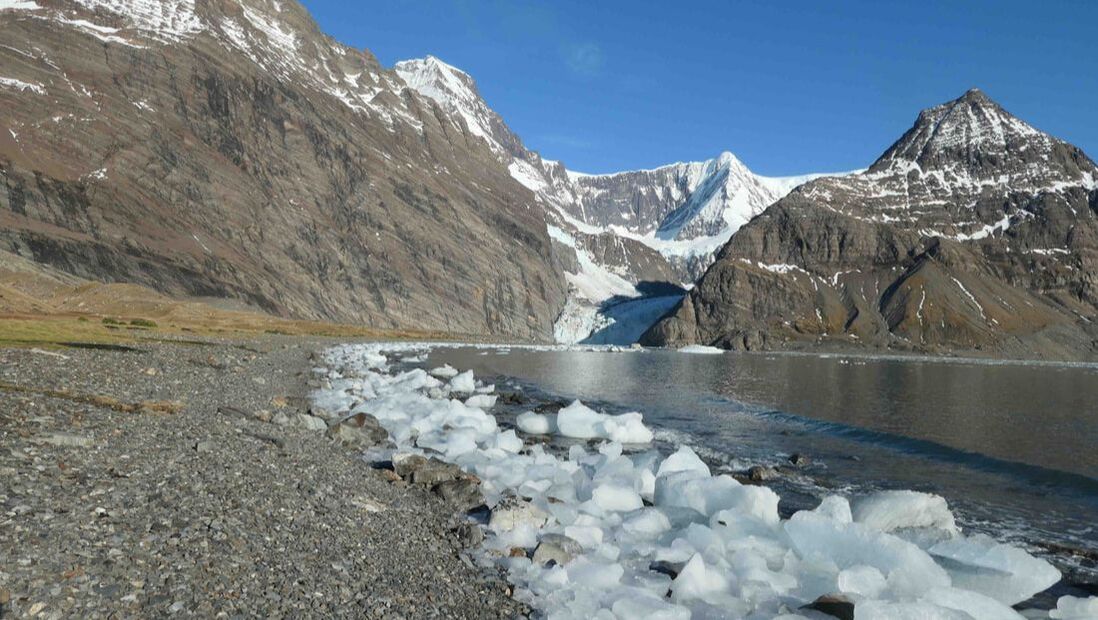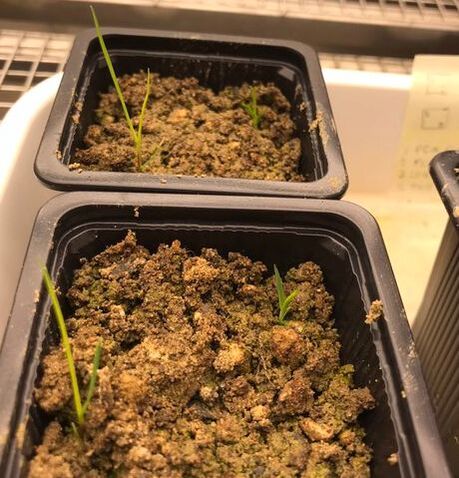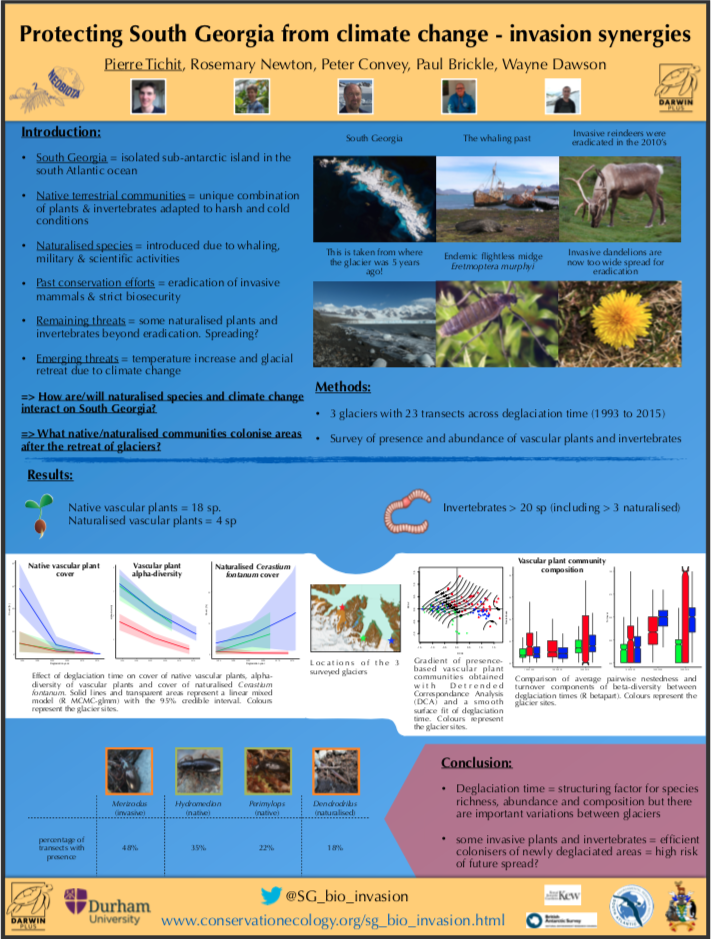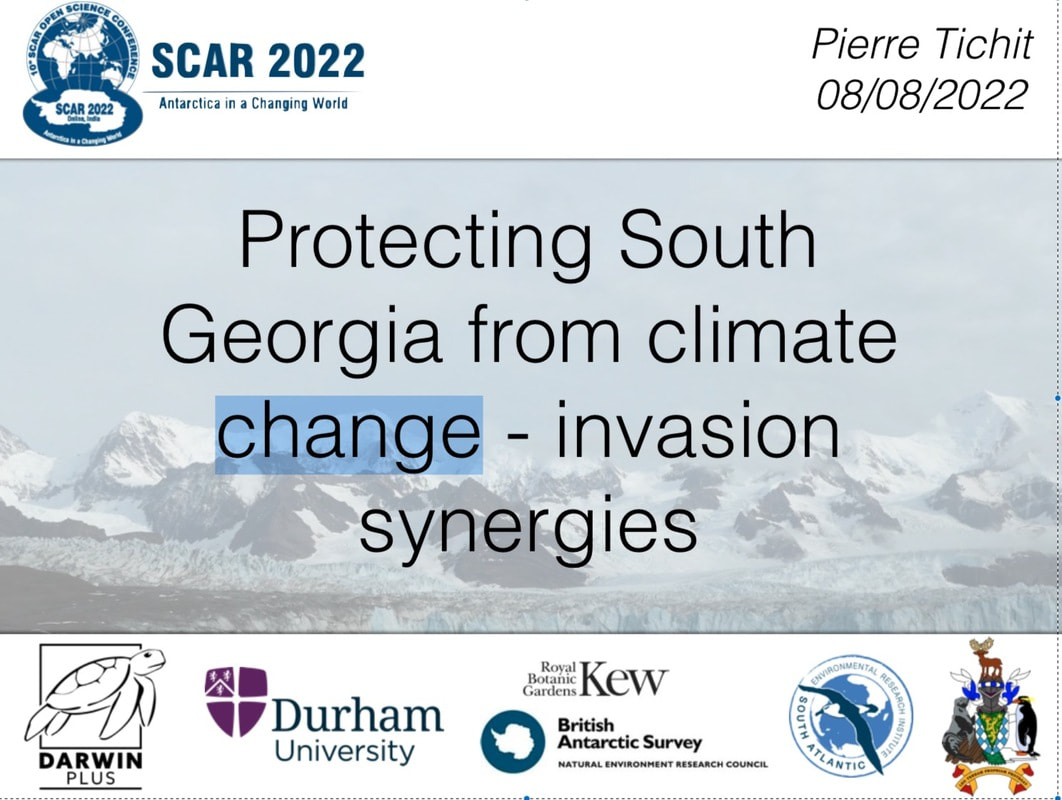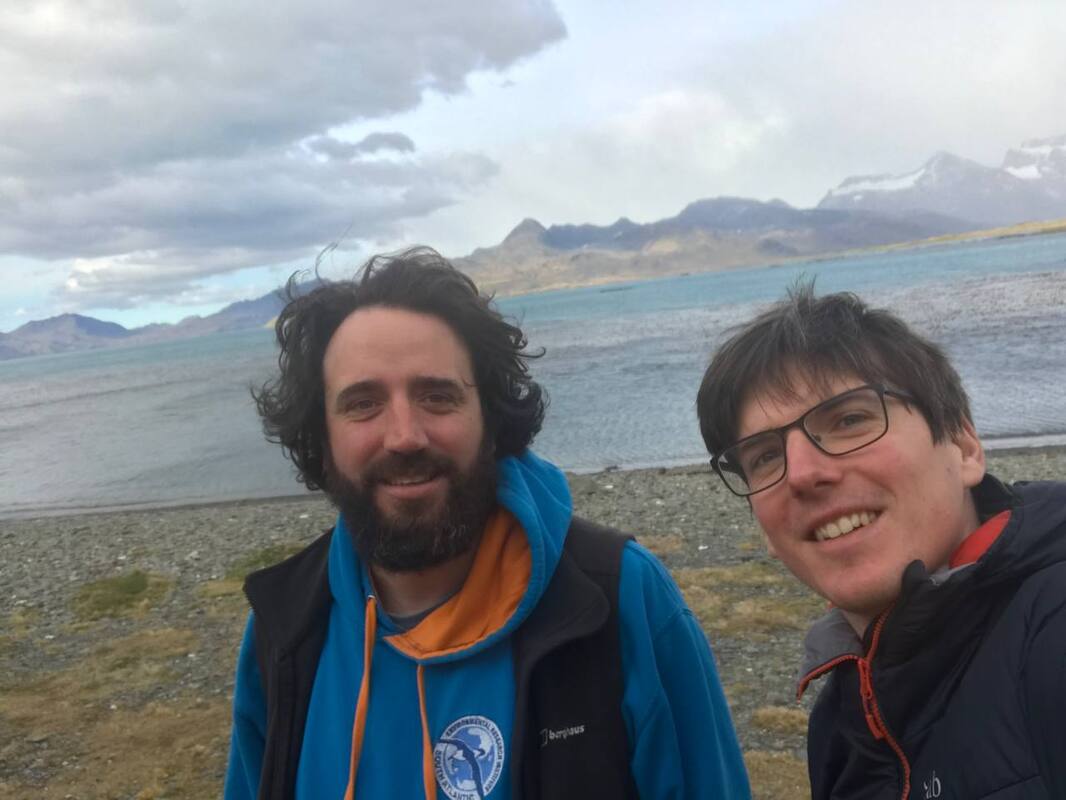About
Context
The effects of climate change are already marked on South Georgia, with rapid glacial retreat. In parallel, the island continues to harbour non-native invasive plants and invertebrates, posing a threat to native ecosystems, with some species now so widespread that eradication is impossible. Objectives Our project will assess the vulnerability of South Georgia’s unique terrestrial ecosystems to invasive plants and invertebrates that may benefit from climate change. To do so, we will : 1) Record colonisation of recently deglaciated areas by non-native species. 2) Identify ‘winning’ and ‘losing’ native and non-native plants under simulated warming. 3) Map invasive carabid beetle and native invertebrate distribution and abundance. 4) Identify high-risk potential future invaders from the Falkland Islands. Impact This research funded by Darwin plus will generate information that will directly help conservation management on South Georgia in a warming climate. |
Twitter
|
Content
|
Participants
|
|
25/09/2022: Plants from South Georgia are now growing in the climate chambers at Durham University.
12/09/2022: a poster at the Neobiota 2022 conference.
08/08/2022: our talk at SCAR 2022 is available online (starts at 1.08.50)
03/08/2022: video summary of the first field season:
13/05/2022: the first field season on South Georgia is over. Thanks to our field assistant Ryan Irvine (left) @RyanIrv66544163
|
